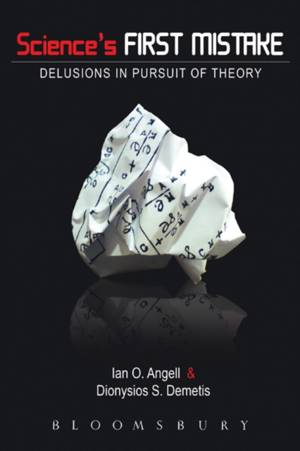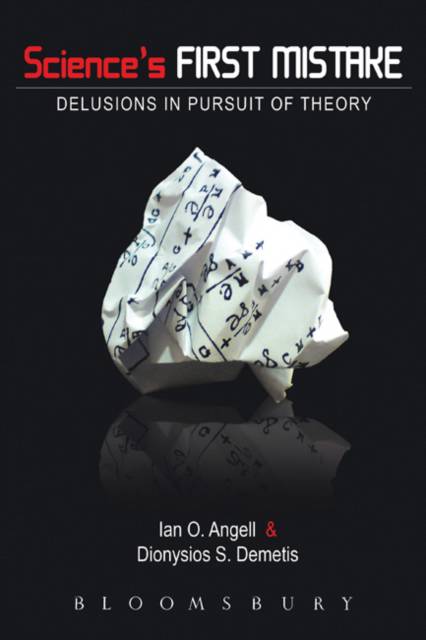
- Afhalen na 1 uur in een winkel met voorraad
- Gratis thuislevering in België vanaf € 30
- Ruim aanbod met 7 miljoen producten
- Afhalen na 1 uur in een winkel met voorraad
- Gratis thuislevering in België vanaf € 30
- Ruim aanbod met 7 miljoen producten
Zoeken
Science's First Mistake
Delusions in Pursuit of Theory
Ian O Angell, Dionysios Demetis
Paperback | Engels
€ 254,45
+ 508 punten
Uitvoering
Omschrijving
This text deconstructs the process of knowledge discovery and theory construction. Grounded in the tradition of second-order cybernetics, the concept of self-reference is used in the context of systems theory in order to examine the mode in which observation, paradox and delusion become "structurally coupled" with cognition.
To put this simply, physical scientists take it as a given that all the universe is explainable once we've discovered the underlying rules. Whereas social scientists and philosophers are more sensitive to the issues around how the observer actually impacts that which is being observed. The authors work in the fields of Information Studies, which is within the technical or physical realm, and Management Studies, which is about human behavior. Their argument is that all scientists (physical and social) rely too much on the absolutism and certainty of the methods of traditional physical science and that we should acknowledge the limitations of how we know what we know. Rooted in information systems analysis this fresh and audacious examination of knowledge discovery and theory construction makes an important contribution to the understanding of how we employ scientific method.Specificaties
Betrokkenen
- Auteur(s):
- Uitgeverij:
Inhoud
- Aantal bladzijden:
- 256
- Taal:
- Engels
Eigenschappen
- Productcode (EAN):
- 9781849660648
- Verschijningsdatum:
- 15/10/2010
- Uitvoering:
- Paperback
- Formaat:
- Trade paperback (VS)
- Afmetingen:
- 155 mm x 234 mm
- Gewicht:
- 498 g

Alleen bij Standaard Boekhandel
+ 508 punten op je klantenkaart van Standaard Boekhandel
Beoordelingen
We publiceren alleen reviews die voldoen aan de voorwaarden voor reviews. Bekijk onze voorwaarden voor reviews.







